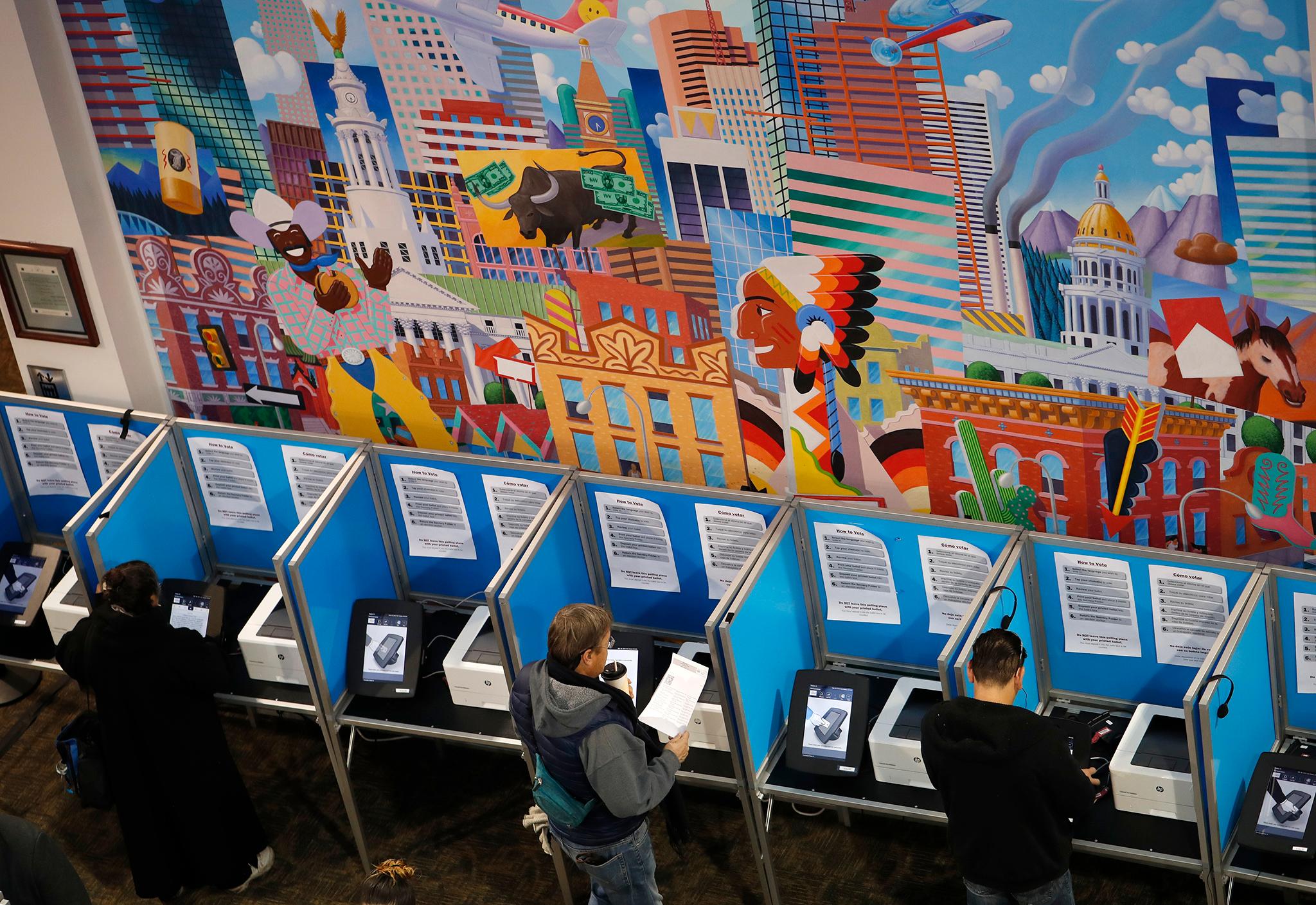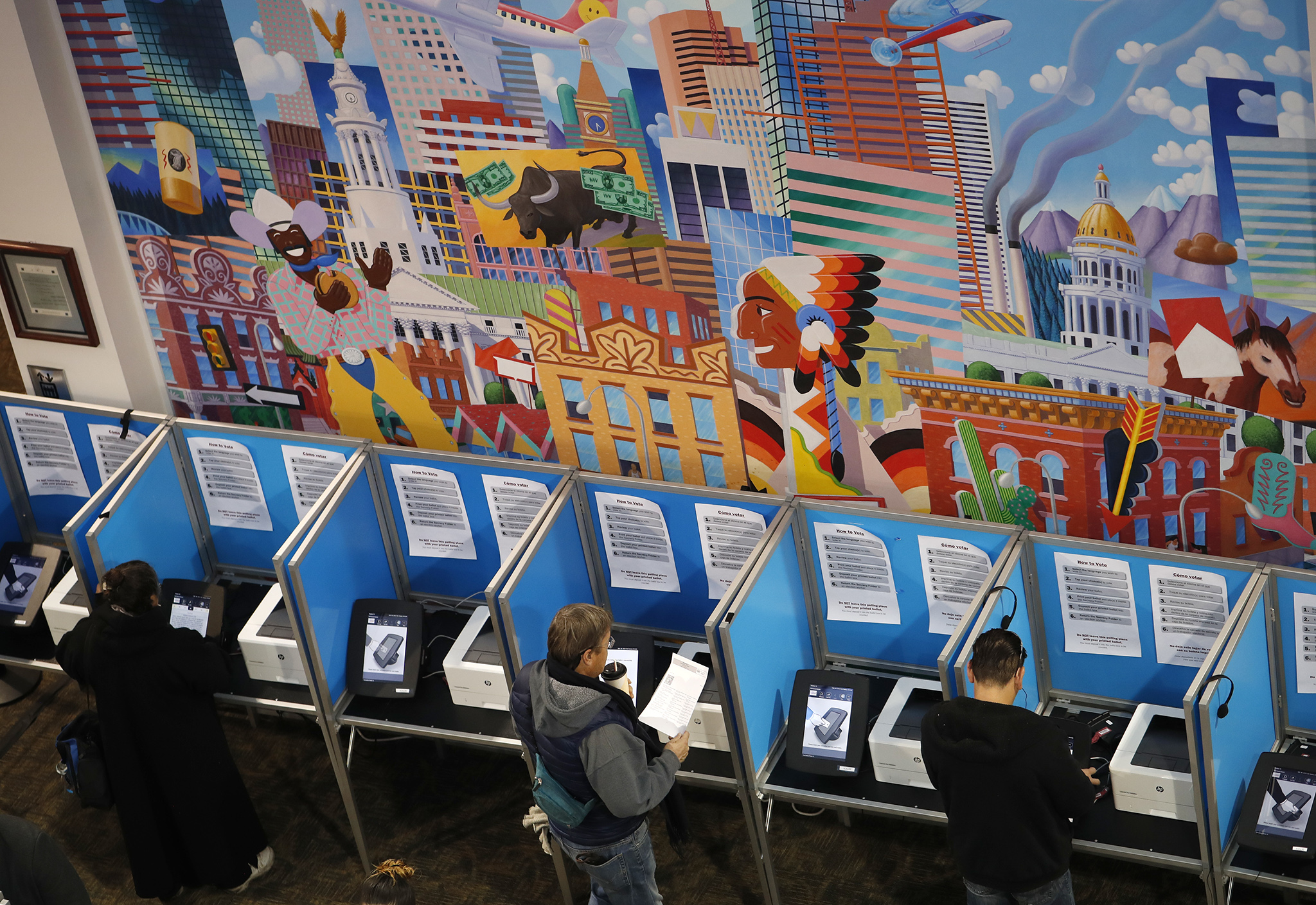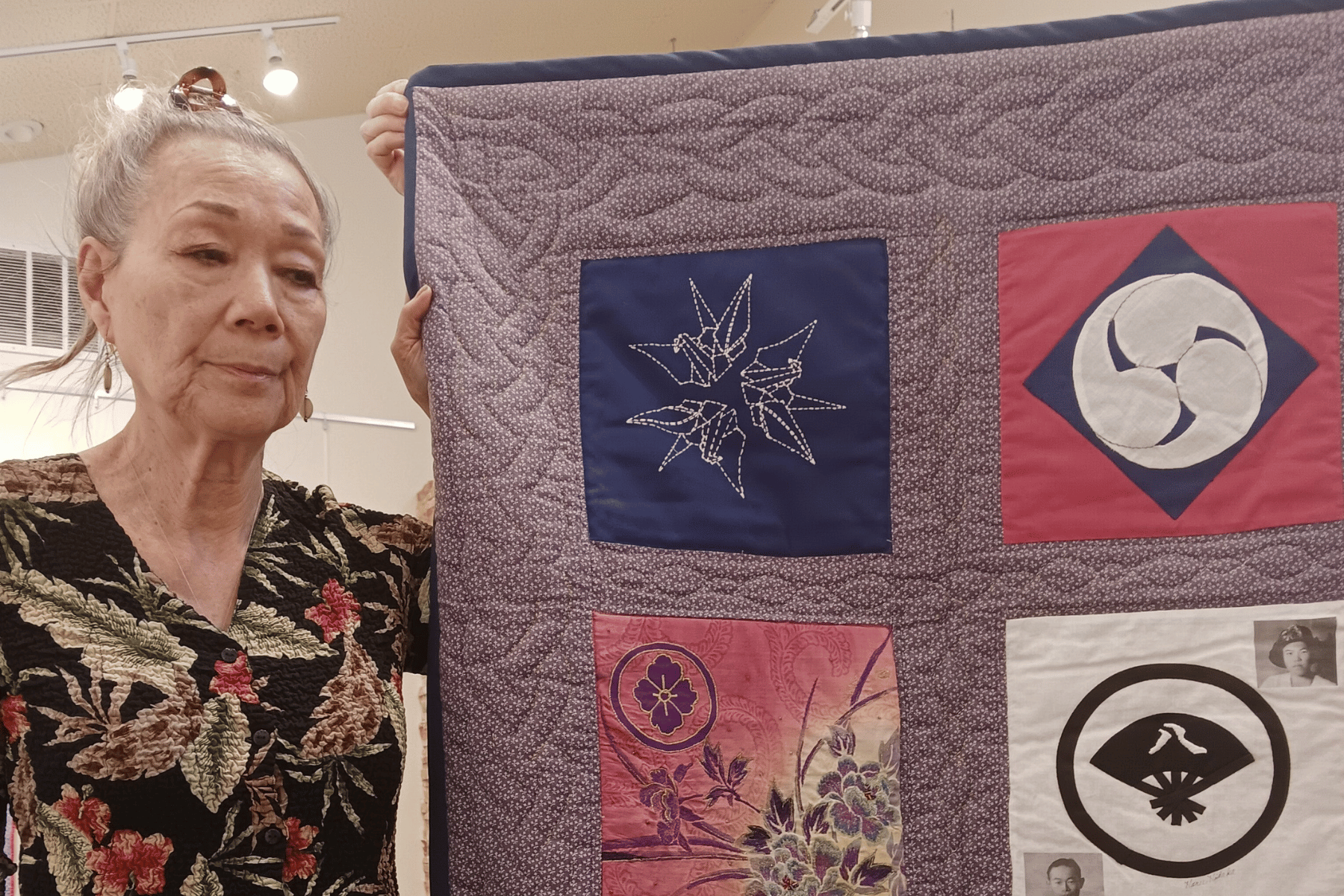

Update, 7:05 p.m., April 18, 2019: Additional data from the Secretary of State's office revealed that a large percentage of people declining to update their voter information at the DMV are already registered voters.
In the near future, your Colorado ballot could have an uncanny ability to find your mailbox.
You may not have filled out a registration form or even told a DMV clerk it’s okay for them to update your voter information. Officials will just use state records to get all the data they need to put a ballot in your hands every single election cycle.
This is the vision behind a Democratic bill now working its way through the state Capitol. The legislation would change how Coloradans opt out of being added to the voter rolls. Currently, eligible voters can decline to be enrolled when they encounter the question in person at the DMV or on the division's website. Under the new system, the state would send a postcard to electors who interact with the DMV or state Medicaid offices, asking if they’d rather not be a registered voter.
If they don’t return the postcard after 20 days, their voter information is added or updated. Automatically.
“We have high participation rates, but we can do a little bit better,” said Democratic state Sen. Jessie Danielson, one of the bill’s sponsors. “Part of that effort is making sure that if there’s any barrier to someone participating in the process, we should just remove those barriers.”
Across the country, Democrats have made automatic voter registration (called AVR by insiders) part of a broad effort to increase ballot access. Seventeen states and the District of Columbia already have authorized the programs, according to the National Conference of State Legislatures.
What makes the current battle in Colorado different is that the state already has automatic voter registration. Former Republican Secretary of State Wayne Williams enacted the program through a rule change in 2017.
The Democratic plan just shifts the design of the program. Rather than letting people opt out of registering during a transaction at the DMV, they would be given that opportunity through a mailer after the fact. It also expands the program to state Medicaid offices.
The plan has drawn criticism from Republicans, which likely doesn’t come as a surprise. But some prominent AVR advocates are also against a piece of the legislation.
“The current system is working very well, so we don’t see a reason to change it,” said Sean Morales-Doyle, a lawyer for the Brennan Center for Justice at the New York University Law School.
The Brennan Center recently completed a study of AVR systems across the country, finding the programs consistently boost voter rolls. In Colorado, the study found a 16 percent increase in registration due to the current program. The uptick is almost identical Oregon’s, which uses a mailer-based program.
“Oregon does it from the back. Colorado does it from the front,” Morales-Doyle said. “Nothing about those numbers tell us one or another of these measures is more or less effective.”
Morales-Doyle said he would support expanding the Colorado’s AVR program to Medicaid offices in its current form.
Amanda Gonzalez, executive director for Colorado Common Cause, disagrees that there’s no need for a change. Data from the Colorado Secretary of State shows that about 31,000 people who weren’t on the voter rolls declined to register at DMVs in March -- about a quarter of all transactions. A spokesperson added that those numbers were consistent with previous months.
“It makes us wonder what’s going on there. Is it just that people are sad and want to get out of there?” Gonzalez said. “We’re worried that maybe that process isn’t working to make registration more convenient for Colorado voters.”
Others worry the new system could end up registering non-citizens.
That includes Republican state Sen. Jerry Sonnenberg. He said that by removing personal responsibility from voter registration, it becomes the job of bureaucrats to keep non-citizens off the voter rolls.
“We are creating a system in which we will have people slip through the cracks … then we find out later shouldn’t have been able to vote,” he said.
Non-citizens can receive driver’s licenses and Medicaid, so they do interact with the agencies that would be feeding information to the Secretary of the State for automatic registration.
Amanda Gonzalez said bill only include those agencies because they conduct regular database checks for citizenship. If someone isn’t a eligible to vote, they wouldn’t be automatically registered.
Even so, proponents discovered a wrinkle in that plan last week. The state DMV noticed that some lawful permanent residents already have Colorado driver’s licenses or licenses from other states. Since they already have a license, they wouldn’t necessarily have to provide evidence of citizenship to renew it or obtain a Colorado license for the first time. That means they could end up registered — unless they return one of those postcards to opt-out.
Martha Tierney, an election lawyer and general counsel for the Colorado Democratic Party, helped draft the bill now under consideration. She said backers are now preparing an amendment to head off the potential problem by requiring proof of citizenship for residents in that category.
“We know we need to and will get this right,” she wrote in an email. “Even a small chance a non-citizen could inadvertently be registered is not acceptable.”
Morales-Doyle with the Brennan Center said Colorado’s current opt-in system adds a buffer against non-citizens being added to the voter rolls — and voting. Such instance are incredibly rare, but often come with harsh punishments.
“It’s better to have people interacting with the agencies fully informed of what’s going on,” he said. “I worry if they get something in the mail after the fact, they might not be.”
Beyond technical concerns about the bill, there are underlying conflicts about its political consequences.
Republican Sen. Jerry Sonnenberg is worried the plan is a disguised attempt to shift the electoral playing field toward Democrats. He sees hypocrisy among proponents, who claim they want to register all voters, “but it appears that they only want to register certain groups of people.”
Sonnenberg suspects Democratic lawmakers want to focus on Medicaid and DMVs because more Democratic voters interact with those state agencies. He would rather everyone in Colorado who pays income or property taxes be sent a postcard asking them to opt-in to register. Advocates for AVR scoff at that idea, saying far more non-citizens could end up on the voter rolls.
Still, the debate displays a partisan split over voter registration. Republicans like Sonnenberg think it should be a personal choice, arguing people who don’t want to participate shouldn’t have to worry about ending up in the public voter file.
Democrats, on the other hand, are looking for ways to increase participation. They point out that voter registration is in itself a barrier to voting, especially when the onus falls on individuals. Shifting that responsibility to the state could result in a more inclusive, diverse electorate.
“We have a racist legacy around voter registration in this country,” said Amanda Gonzalez with Common Cause. “If we can automatically register everyone who’s eligible, it’s one of the ways we can reduce biases in the system.”









